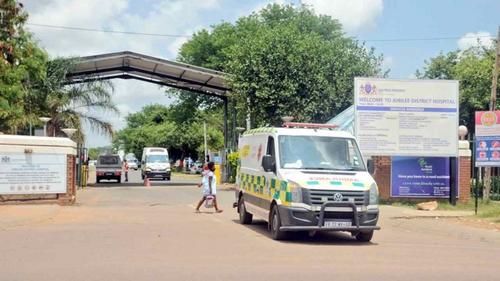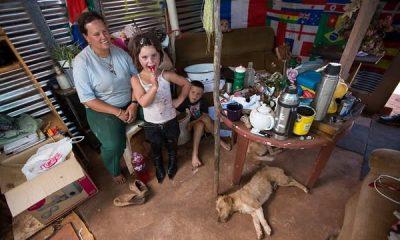Health
Authorities launch investigation to find source of cholera outbreak in Hammanskraal

Authorities have launched an investigation to find the cause of the cholera outbreak. As per IOL, the outbreak has plagued Hammanskraal, claiming the lives of 15 individuals as of Monday afternoon.
The Department of Water and Sanitation and provincial health departments have quickly established a command centre in Hammanskraal, north of Pretoria. The primary objective of this initiative is to curb the spread of waterborne disease and alleviate its devastating effects. The urgency escalated when Jubilee District Hospital reported five more deaths.
Water and Sanitation Deputy Minister, David Mahlobo, announced on Monday that the number of fatalities had risen to 15. In response to this critical situation, the government wasted no time mobilising resources to establish a command centre. The aim is to find immediate solutions and prevent further loss of life.
The authorities have assembled multi-disciplinary teams to tackle the crisis effectively, each focusing on specific aspects. For example, one such unit’s task is enhancing the capacity of the health sector to contain the spread of cholera. Simultaneously, efforts are underway to conduct thorough scanning activities to ensure that the outbreak remains localised and does not affect neighbouring provinces or urban areas.
Deputy Minister Mahlobo emphasised that authorities have launched a formal investigation to determine the root cause of the outbreak. This investigation aims to ascertain whether any negligence by individuals or institutions may have led to water contamination. The team leading this investigation consists of experts, including two deputy directors-general from the Department of Water and Sanitation with engineering expertise.
Also read: Possible cholera outbreak in Gauteng townships
The investigation will encompass a comprehensive examination of all water sources utilised by the Tshwane council for water supply to the residents, including Rand Water and the Magalies system. By conducting a thorough analysis, the authorities hope to get information on the origin of the contamination and hold any responsible parties accountable.
Meanwhile, as an immediate measure, residents will be provided with trucked-in water to meet their daily needs. The priority is to address the situation swiftly, and with the cooperation of community leaders and various structures, the authorities are optimistic about preventing further loss of life.
The first cholera cases emerged in early February when two sisters, who had recently attended a funeral in Malawi and returned to Johannesburg on January 30, started exhibiting symptoms. Tshwane Mayor Cilliers Brink originally planned to join the hospital’s leadership to outline the City’s plans for assistance. However, he faced opposition from disgruntled and angry residents who denied him entry.
Despite this setback, the City of Tshwane dispatched a dedicated unit to provide support at the hospital. Additionally, peer educators have been conducting door-to-door visits, advising residents on measures to keep their water safe and clean.
Initial sampling tests conducted at multiple sites in Temba and Hammanskraal by the City of Tshwane revealed no presence of cholera in the piped water supply. However, it is essential to note that the water is heavily treated with chlorine to ensure safety. In addition, the City has expanded its testing efforts and is interviewing patients to aid in tracing the source of the contamination.
Also read:






















